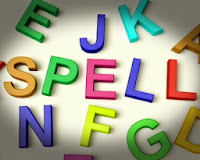Style Guides and Creative Writing
 |
| Image courtesy of Stuart Miles at Freedigitalphotos.net |
What Is a Style Guide?
Style guides provide guidelines on the parts of writing where a hard and fast rule doesn't exist. A choice must be made. There are several types of guides, and it depends on the type of writing you're doing as to which style guide you should use.Style guides provide rules on various questions such as:
- Is it email or e-mail?
- How do you format the title of a book, article, short story, etc.?
- Do you use s's or s' when making a plural word possessive?
- Which font do you use for your text?
- How do you write a citation?
- How do you abbreviate?
- When do you capitalize?
- Do you spell out numbers or use the numeric reference?
Guides provide comprehensive information about how to finalize your document prior to publishing.
Which Style Guide Do You Use?
Depending on your industry, you might be asked to adhere to one style guide over another. Sometimes, companies develop their own style guides, too. Some of the more well-known guides and their typical uses are:- The AP Style Guide: Journalism, electronic publishing, and business
- The Chicago Manual of Style: Publishing, Academic
- The MLA Handbook of Style: Classroom instruction, scholars, academic publishers, and commercial presses
As creative writers, it doesn't hurt to be aware of these guides, but it's unlikely you will have complete knowledge of the style guide your publisher uses. It you self-publish, you will want to find an editor who knows style guides well enough to finalize your copy prior to publication.
How Much Should You Know?
If you're writing an academic paper or a journal article for a publication that adheres to particular guide, then you should have familiarity with the rules listed in that guide. If you're a creative writer, it doesn't hurt to know some of the guidelines, especially if you're writing historical fiction, but you can count on the publisher to make any adjustments necessary for publication. Your best bet is to be consistent in what you do. For example, if you write e-mail in your document with the hyphen as I've just done, then every time you use that word, it should appear hyphenated.Although it's important to know style guides exist, you might not need to know a lot about them. Copy editors and publishers ensure your manuscript fits the guidelines.



Comments